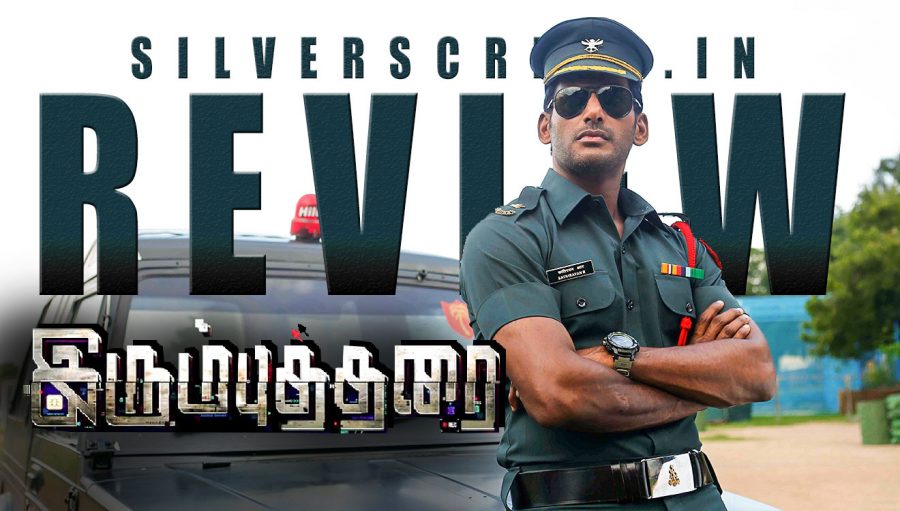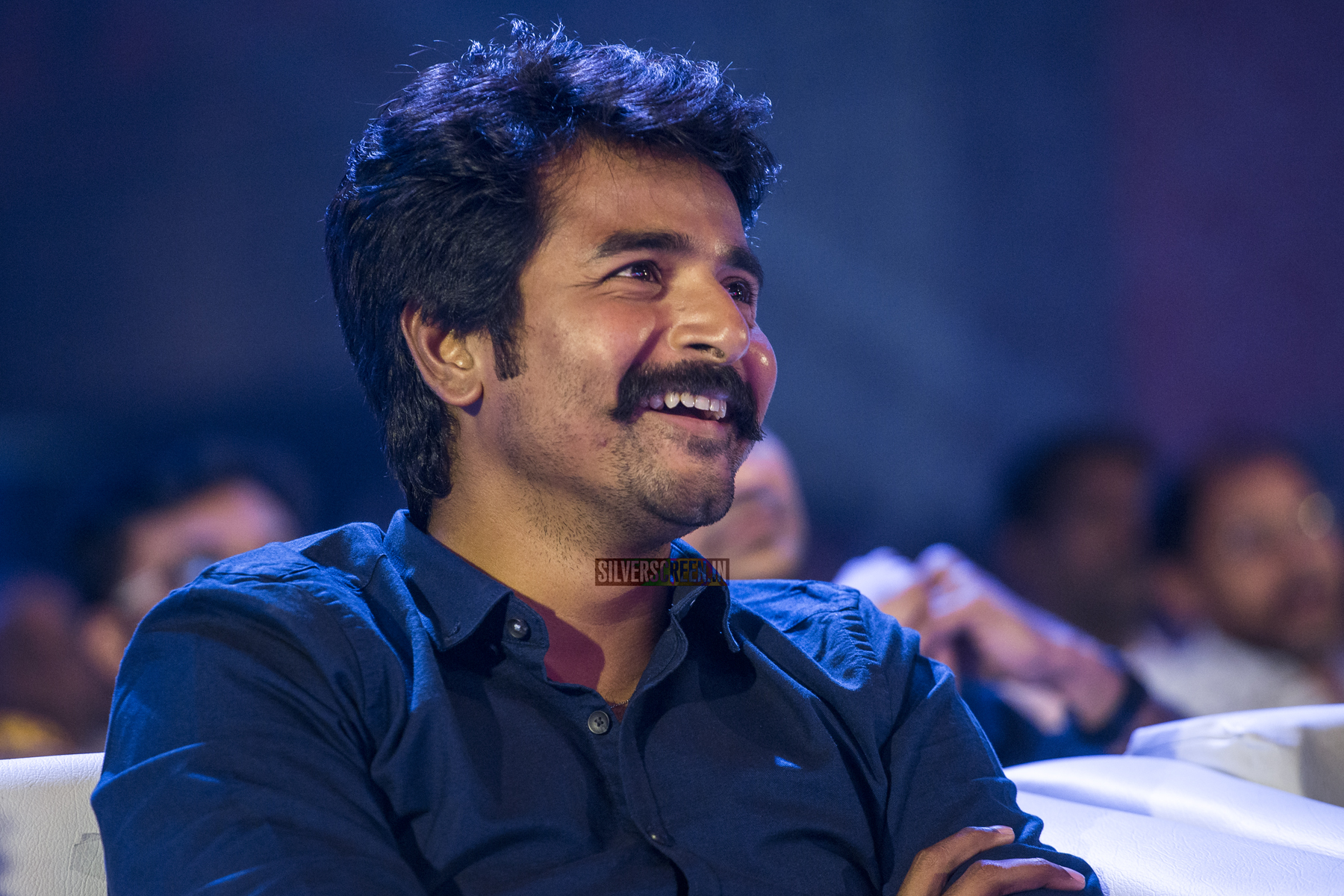Vishal’s Irumbu Thirai is a regular pot-boiler for the most part. It introduces its protagonist through a poorly written scene set inside a bar, and culminates in a fight scene inside a warehouse. The hero falls in love with the heroine the moment she enters the frame with her hair flying in a non-existent wind and face glowing like an LED bulb. He has a friend who cracks distasteful jokes regardless of situation. Irumbu Thurai, following the trend in Tamil cinema, gifts itself a chic new-age villain – a smartly dressed, highly educated tycoon whose get-up might remind one of Hugh Jackman’s Wolverine. He is seen mostly inside a high-tech room, plotting to take over the world by robbing poor farmers, clerks and students of their petty savings. The hero and the villain indulge in a cat and mouse chase that is so logically flawed that you could stop paying attention to the details after a point.
That the plot and characterizations are asinine should not come as a surprise, for this film isn’t about either of them. Irumbu Thirai, directed by PS Mithran, is all about its timeliness. With the Indian government hastily pushing Aadhaar and digitization into the lives of clueless citizens, and utterly unsettling pieces of information coming out of giant internet-based companies across the world, there couldn’t be a more apt moment to make this movie which elucidates, often like a documentary, on the dangers of internet that’s looming large. As the titles roll down, a cyber expert appears on the screen and explains the myriad threats posed by the web world. The plot is just an excuse for the lead characters to lecture the audience on data privacy, digital economy and dark net in the most elementary terms, displaying more earnestness than Rahul Dravid in the No Smoking advert.
The protagonist, Kathiravan (Vishal), is a bizarre man. When we meet him first, he is in a bar, trying to hit on a Spanish woman. A few minutes into saying hello, he animatedly proposes to her a wedding and a future life in her Spanish home town. You might pass him for yet another goof looking for an easy flight from India to the comforts of a European city. Turns out you are wrong. The protagonist of Irumbu Thurai has a steady job that makes him more patriotic than you could ever be. He is an Army Major, strict and fit as a fiddle, with an exceptional track record. A couple of scenes later, his senior officer sends him to a psychiatrist – no, not because he suffers from a personality disorder – because he has a terrible temper problem. The doctor, Rathi Devi (Samantha), asks him to travel to his remote village and patch up with his estranged family – his father (Delhi Ganesh), a farmer, and sister (Darshana Rajendran). The man hesitantly agrees. For over an hour, you are treated to this domestic drama that is, in no way, connected to the core plot of the film. The scenes in this portion are made up of stock situations, sans any hint of imagination, and around the interval point, the film announces that it is finally getting on track.
Although touted to be a thriller, Irumbu Thirai is only pretending to be so. The narrative is eerily similar to Mohan Raja’s Thani Oruvan, with a double dose of social commitment tossed in. In all fairness, action scenes are impressively choreographed and shot. Vishal and Arjun, who plays the stylish villain, are mighty good in stunt sequences, although there isn’t much else to their performance. Samantha is a poor casting choice. She turns the already-insignificant character more irrelevant and sometimes, cringe-worthy. She mouths dialogues as though not to hurt the air around her lips.
Recommended
It’s curious that social-commitment films in India almost always use women as an object to base their agitation on. In his films such as Toilet Ek Prem Katha and Padman, Akshay Kumar embarks on to change the rural India by building toilets and manufacturing sanitary napkins, and in both the cases, it’s his concern for his wife’s honour and health that drives the film ahead. In Irumbu Thirai, Kathiravan gets a taste of the highly unfair banking system in the country when he sets out to make some money to pay his sister’s prospective groom and family. The film has a complicated sense of morality and social responsibility. While the hero is furious because the banks wouldn’t give loan to farmers, he is comfortable with the fact that his sister’s long-time lover and his family are asking for a huge sum of dowry. Women in these films are treated either as a responsibility or a manic-pixie, nothing more or less.
Even though they follow a similar pattern, Irumbu Thirai is diagonally opposite to Bollywood’s nationalism films. While films such as Padman ask the audience to blindly trust the government, Vishal’s film, all its masala elements aside, asks the people to be wary of the government that is hand in gloves with the blood-sucking corporate companies. The hero’s army background makes him morally superior even when he is bashing the government system. The film is founded on a different kind of patriotism that places people over the government. It doesn’t bootlick. While it’s nothing close to a good cinema, Irumbu Thirai deserves a pat on its back for bringing to screen a relevant cautionary tale.
***



